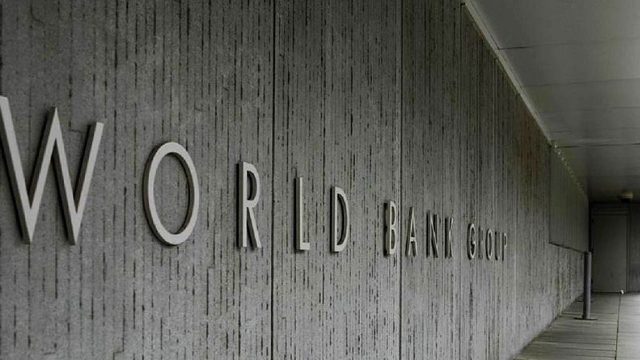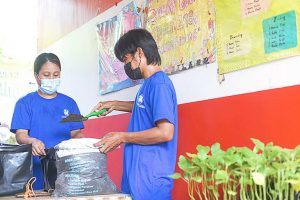THE DIVIDE between Asia’s two main financial hubs in handling the pandemic is growing ever wider, with one opening up to global travel and the other maintaining one of the world’s harshest quarantine policies.
In Singapore, officials are taking steps to reconnect with the global economy even as the government faces pressure to favor locals over foreigners for well-paying jobs. Speaking in a televised address over the weekend, Prime Minister Lee Hsien Loong said that Singapore can’t stay “locked down and closed off indefinitely” and residents should prepare to see “many COVID-19 (coronavirus disease 2019) cases for some time to come.”
Hong Kong Chief Executive Carrie Lam has taken the opposite approach, stressing in a Bloomberg Television interview Monday that even a single death would be a “major concern” as she follows China’s COVID Zero approach that tolerates no local infections. While expressing concern about the city’s reputation, Ms. Lam said she was “duty bound to protect my people” and businesses in any case saw Hong Kong as a gateway to the mainland.
The divergence is raising questions about Hong Kong’s future as a regional hub, particularly among an expat business community that for years has bounced back-and-forth between the former British colonies known for low tax rates, friendly labor laws and easy immigration policies. Even fully vaccinated residents in Hong Kong face a mandatory 21-day hotel stay if they visit locations like the US and UK, while Singapore is starting to allow quarantine-free travel to those places and more.
A Facebook post on Saturday captured the ennui many are feeling in Hong Kong. In a group with 55,000 members to support those stuck in quarantine, one member wrote that the city’s restaurants, bars, beaches and hiking trails were getting monotonous, and many residents who see life returning to normal in Europe or the US often don’t want to come back.
“I was born here and have lived in this beautiful city for 36 years, but I can’t go on anymore. I can’t take it,” the person wrote in the post, which had more than 1,000 likes and nearly 500 comments as of Monday afternoon. “The thing is if there was any semblance of hope — on X date we will open up — then the atmosphere here would be buzzing. But the feeling is there is no hope or end in sight.”
Hong Kong’s strict travel policies show just how much its leaders are keen to impress Beijing, which has moved to eliminate dissent following sometimes-violent pro-democracy protests in 2019. But quarantines are required even for travel to the mainland and there’s no clear criteria for easing restrictions, leaving the business community with nowhere to go that doesn’t involve a lengthy time locked in a hotel room.
Danny Lau, who runs a factory in Guangdong province across the China border that manufactures construction materials mostly for US clients, said “Hong Kong could easily be taken over by Singapore” as Asia’s international financial hub if it continues with its COVID Zero policy.
“We of course welcome the Singapore model because it’s very difficult to eradicate COVID,” said Lau, who serves as honorary chairman of the Hong Kong Small and Medium Enterprises Association. “There may still be cases after five years. Are you going to close the border for five years?”
Ms. Lam and other Hong Kong officials say the policies are popular with the public and have worked in suppressing the virus: The city has seen less than 12,300 cases and only 213 deaths throughout the entire pandemic. Disputing accusations that Hong Kong can’t autonomously set policy, Ms. Lam said Monday the city was doing “very well” as a financial center. Last week she said the mainland was “more important” than international business.
But the travel policies are adding to concerns for businesses in Hong Kong, which were already facing a China-backed clampdown on free speech, questions about the independence of the judiciary and an education system now focused on patriotism.
Hong Kong saw a record outflow of 89,200 residents in the year that ended in June, while the latest annual government survey showed the number of US-based firms in the city fell for a third straight year to 1,267 — down 6.2% from 2018. And while the overall number of companies with foreign parents has risen to a record of 9,049 this year — a statistic Ms. Lam cited on Monday as a sign of the city’s competitiveness — data show the increases have come mostly from China.
In one survey, the American Chamber of Commerce said more than 40% of its members were considering leaving the city. Amcham’s president, Tara Joseph, told Bloomberg News last week that lobbying the Hong Kong government to reopen was like “talking to a wall.”
SHRINKING FOOTPRINT
“We’re looking toward the second Christmas in a row when not many families will be traveling home, and that doesn’t help the overall confidence of decision makers in Hong Kong,” said Frederik Gollob, chairman of the European Chamber of Commerce in Hong Kong. He said many companies were discussing measures short of moving their businesses, including relocating people to the mainland or moving certain jobs to other places like Singapore.
That may not be so easy. Singapore has toughened up its immigration policies, increasing scrutiny of banks, fund managers, management consultancies and other firms suspected of “discriminatory hiring practices” that pass over locals for foreigners. In August, Prime Minister Lee pledged to tighten restrictions on foreign workers and raise wages for low-income laborers as the city-state recovers from a pandemic-induced recession.
Singapore has also seen its population drop for a second consecutive year, primarily due to an exodus of foreign workers, students and residents amid tight COVID controls.
Still, the Hong Kong business community is worried. Felix Chung, a pro-establishment lawmaker who represents the textile industry in the Legislative Council, said Hong Kong “cannot disconnect with the rest of the world” if it’s going to be an international financial center.
“Singapore, as a rival to Hong Kong, will definitely take the chance to grab as many of our businesses as possible,” he said. “It’s a threat to Hong Kong.” — Bloomberg











